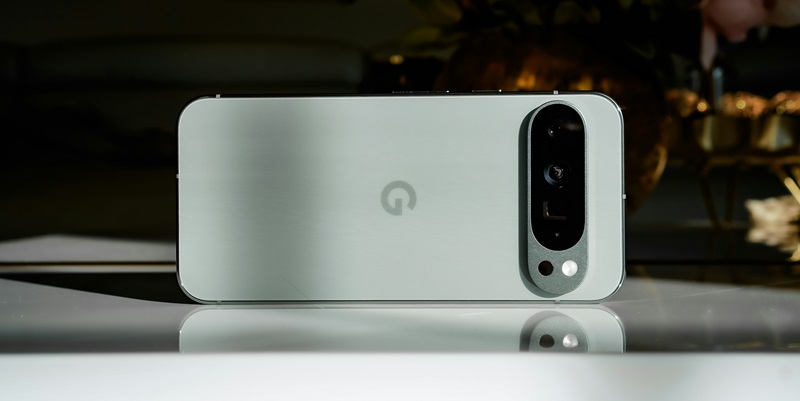The future of technology is increasingly intertwined with artificial intelligence. From voice assistants to predictive algorithms, AI shapes our interactions with devices and information. But can AI extend its reach to the nuanced field of product reviews? In this analysis, we explore an intriguing experiment where Google’s AI is tasked with reviewing the Google Pixel 9 Pro XL smartphone. By comparing the AI-generated reviews to insights from seasoned technology journalist Andrew Lanxon, we delve into the capabilities and limitations of AI in this context.
The Experiment: An Unconventional Approach
With the continuous advancement of AI, Google’s sophisticated algorithms, powered by Gemini Advanced, are designed to handle a plethora of functions. The experiment launched an interesting inquiry: can AI provide an accurate and insightful review of the Google Pixel 9 Pro XL? Andrew Lanxon, leveraging his extensive experience in tech journalism, set a benchmark with his professional review and then compared it to the AI’s output.
The AI demonstrated a commendable grasp of the basic features and specifications of the Pixel 9 Pro XL. It highlighted the phone’s refreshed design, long software support, and new AI tools. Yet, despite this apparent proficiency, the experiment quickly revealed limitations. Unlike human reviewers, AI tends to lack the subtlety and context required to weigh the subjective aspects of a product accurately.
AI reviewing tools proved adept at processing and presenting straightforward features and specifications. The AI consistently acknowledged the phone’s design, noting its refined aesthetics and comfortable handling. Similarly, it did well in detailing the phone’s long software support period, which is a significant selling point for many consumers.
One area where the AI review excelled was its coverage of the Pixel 9 Pro XL’s advanced AI tools. By leveraging its understanding of AI capabilities, the AI itself could identify and articulate the innovative features built into the smartphone. This meta-analysis highlighted how AI could effectively showcase technological synergies, suggesting potential in areas where understanding advanced software is crucial.
Limitations and Inconsistencies in AI Reviews
However, the AI reviews did not come without significant drawbacks. The starkest limitation observed was the inconsistency and variability of the AI’s responses. Depending on how questions were framed, the AI’s output ranged from excessively praising to unduly critical, indicating an underlying lack of nuanced judgment.
The AI’s take on the Pixel 9 Pro XL’s camera capabilities serves as a prime example. Initially hailed as "exceptional," the AI’s portrayal lacked consistency when addressing low-light photography—a feature Andrew Lanxon critically reviewed. This erratic feedback highlights how AI struggles to account for varied user experiences, which are critical in comprehensive reviews.
Andrew Lanxon’s professional insights underscored the indispensable value of human evaluation in tech reviews. Throughout his analysis, Lanxon deftly balanced praise and criticism based on firsthand experience, highlighting strengths in daytime photography while candidly addressing low-light shortcomings. Such nuanced insights are vital for consumers making informed decisions.
Comparatively, the AI’s review seemed mechanical and sometimes incorrect, such as mistaking the Tensor G4 processor for the Tensor G3. Such errors erode the credibility of AI reviews in scenarios demanding high accuracy and deep domain knowledge. It becomes evident that human expertise brings an irreplaceable depth to product evaluations, grounded in practical use and emotional intelligence.
The Human Touch: Essential Expertise
Reflecting on both perspectives, the Google Pixel 9 Pro XL showcases several standout features. The AI reviews largely echoed consumer-friendly points, highlighting the phone’s design, advanced AI tools, and software support, all of which Lanxon agreed were strengths. However, the AI’s inability to properly gauge battery life and performance in varied real-world scenarios underscored significant gaps.
Lanxon emphasized that while the phone offers decent battery performance, it varies significantly across different use cases—a detail AI generalized with sweeping statements. This synthesis of expert insight and AI commentary makes a compelling case for why human reviews remain crucial in providing balanced, detailed, and accurately interpreted information.
Despite the evident limitations, the potential applications of AI in product reviews hold promise. AI can streamline the presentation of technical details and identify innovative features quickly. As the technology matures, improvements in contextual understanding and subjective judgment could enhance AI’s effectiveness in this domain.
However, the current state suggests a symbiotic approach where AI aids human reviewers rather than replacing them. Leveraging AI for preliminary assessments, fact verification, and feature highlighting could free human reviewers to focus on nuanced analysis and experiential insights, thereby enhancing the overall quality and reliability of tech reviews.
Potential and Future of AI in Reviews
The future of technology is becoming increasingly linked with artificial intelligence. From voice assistants to predictive algorithms, AI is shaping our interactions with devices and the information we consume. This analysis takes a fascinating look at whether AI can extend its capabilities to the nuanced and subjective field of product reviews. Specifically, we examine an experiment where Google’s AI is given the task of reviewing the Google Pixel 9 Pro XL smartphone. The AI-generated reviews are then compared to the insights offered by experienced technology journalist Andrew Lanxon. Through this comparison, we aim to delve into both the possibilities and the limitations of using AI for such a discerning task. Can AI truly capture the detail and depth required in product reviews, or are human insights still indispensable in this domain? This exploration not only sheds light on AI’s current capabilities but also offers a glimpse into what the future might hold for AI in the realm of subjective analysis and critique.

